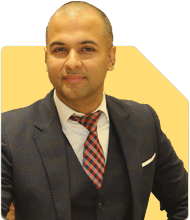Ramalingam Kalirajan |8204 Answers |Ask -Follow
Mutual Funds, Financial Planning Expert - Answered on May 25, 2024
He has an MBA in finance from the University of Madras and is a certified financial planner.
He is the director and chief financial planner at Holistic Investment, a Chennai-based firm that offers financial planning and wealth management advice.... more

Sir i am 52 years .Now my salary is 1 lakh .i want to purchase gold 6 lakh or invest in mutual fund or FD in sbi pl guide
At the age of 52, planning for financial security is crucial. Your current salary of Rs 1 lakh per month is substantial. Your goal to invest Rs 6 lakh wisely is commendable. Let’s explore the options of purchasing gold, investing in mutual funds, and opting for a fixed deposit (FD) with SBI. Each option has its own set of advantages and disadvantages. I will guide you through these to help you make an informed decision.
Purchasing Gold
Gold is traditionally considered a safe investment. It acts as a hedge against inflation and currency devaluation.
Advantages:
Inflation Hedge: Gold often retains value even when inflation rises.
Liquidity: Gold can be easily sold in the market whenever needed.
Tangible Asset: Holding physical gold provides a sense of security.
Disadvantages:
No Regular Income: Gold does not provide interest or dividends.
Storage and Security: Keeping physical gold requires safe storage.
Price Volatility: Gold prices can be volatile and may not always increase.
Purchasing gold can be part of a diversified portfolio, but relying solely on gold may not be the best strategy for growth.
Investing in Mutual Funds
Mutual funds pool money from many investors to invest in a diversified portfolio of stocks, bonds, or other securities. They are managed by professional fund managers.
Advantages:
Professional Management: Certified Financial Planners manage funds, making informed decisions.
Diversification: Mutual funds invest in a variety of assets, reducing risk.
Potential for High Returns: Equity mutual funds have historically provided higher returns than gold or FDs.
Liquidity: Mutual funds can be easily bought or sold.
Disadvantages:
Market Risk: Mutual fund returns are subject to market fluctuations.
Management Fees: There are costs associated with fund management.
No Guaranteed Returns: Unlike FDs, mutual funds do not guarantee returns.
Given your age, consider balanced or hybrid mutual funds. These funds invest in both equities and debt, providing a balance of risk and return.
Fixed Deposit (FD) in SBI
Fixed Deposits (FDs) are a popular investment option for risk-averse investors. SBI offers competitive interest rates on FDs.
Advantages:
Safety: FDs are considered one of the safest investment options.
Guaranteed Returns: The interest rate is fixed and guaranteed.
Predictable Income: FDs provide regular interest payouts.
Disadvantages:
Lower Returns: FD returns are generally lower compared to mutual funds.
Inflation Impact: Returns may not always beat inflation.
Premature Withdrawal Penalty: Withdrawing funds before maturity can attract penalties.
FDs are suitable for conservative investors who prioritize capital protection over high returns.
Evaluating Your Risk Tolerance
Your risk tolerance is a key factor in deciding where to invest. At 52, you may want a mix of safety and growth.
High Risk Tolerance:
Consider Equity Mutual Funds: They offer higher returns but come with higher risk.
Moderate Risk Tolerance:
Balanced Mutual Funds: A mix of equities and debt for moderate returns with balanced risk.
Low Risk Tolerance:
Fixed Deposits and Gold: These provide safety and steady returns but with lower growth potential.
Recommendations
Based on the above analysis, here are my recommendations for you:
Primary Recommendation: Invest in Mutual Funds
Balanced Mutual Funds: These funds offer a good mix of safety and growth.
Professional Management: Managed by Certified Financial Planners, ensuring informed decisions.
Diversification: Reduces risk by spreading investments across various assets.
Secondary Recommendation: Fixed Deposits for Safety
Allocate a Portion to FDs: Ensure safety and guaranteed returns for a part of your investment.
Tertiary Recommendation: Small Allocation to Gold
Hedge Against Inflation: A small portion in gold can protect against inflation and currency risks.
Conclusion
Investing Rs 6 lakh requires careful consideration of your financial goals, risk tolerance, and time horizon. Mutual funds, especially balanced ones, offer a good blend of growth and safety. FDs can provide guaranteed returns and capital protection. A small allocation to gold can hedge against inflation. This diversified approach will help secure your financial future while providing potential for growth.
Thank you for seeking my guidance. I appreciate your thoughtful approach to planning for your future. Feel free to reach out for further personalized advice.
Best Regards,
K. Ramalingam, MBA, CFP,
Chief Financial Planner,
www.holisticinvestment.in
You may like to see similar questions and answers below
Ramalingam Kalirajan |8204 Answers |Ask -Follow
Mutual Funds, Financial Planning Expert - Answered on Apr 04, 2024
Ramalingam Kalirajan |8204 Answers |Ask -Follow
Mutual Funds, Financial Planning Expert - Answered on Jul 27, 2024
Ramalingam Kalirajan |8204 Answers |Ask -Follow
Mutual Funds, Financial Planning Expert - Answered on Jul 25, 2024
Ramalingam Kalirajan |8204 Answers |Ask -Follow
Mutual Funds, Financial Planning Expert - Answered on Jul 17, 2024
Samraat Jadhav |2250 Answers |Ask -Follow
Stock Market Expert - Answered on Apr 08, 2025
T S Khurana |438 Answers |Ask -Follow
Tax Expert - Answered on Apr 08, 2025
T S Khurana |438 Answers |Ask -Follow
Tax Expert - Answered on Apr 08, 2025
Mihir Tanna |1043 Answers |Ask -Follow
Tax Expert - Answered on Apr 08, 2025
Harsh Bharwani |79 Answers |Ask -Follow
Entrepreneurship Expert - Answered on Apr 08, 2025
Milind Vadjikar |1157 Answers |Ask -Follow
Insurance, Stocks, MF, PF Expert - Answered on Apr 08, 2025
Milind Vadjikar |1157 Answers |Ask -Follow
Insurance, Stocks, MF, PF Expert - Answered on Apr 08, 2025
Milind Vadjikar |1157 Answers |Ask -Follow
Insurance, Stocks, MF, PF Expert - Answered on Apr 08, 2025
Milind Vadjikar |1157 Answers |Ask -Follow
Insurance, Stocks, MF, PF Expert - Answered on Apr 08, 2025
Ramalingam Kalirajan |8204 Answers |Ask -Follow
Mutual Funds, Financial Planning Expert - Answered on Apr 08, 2025

























.jpg)